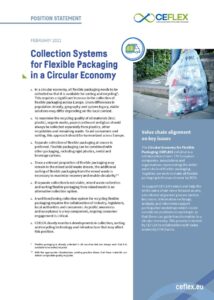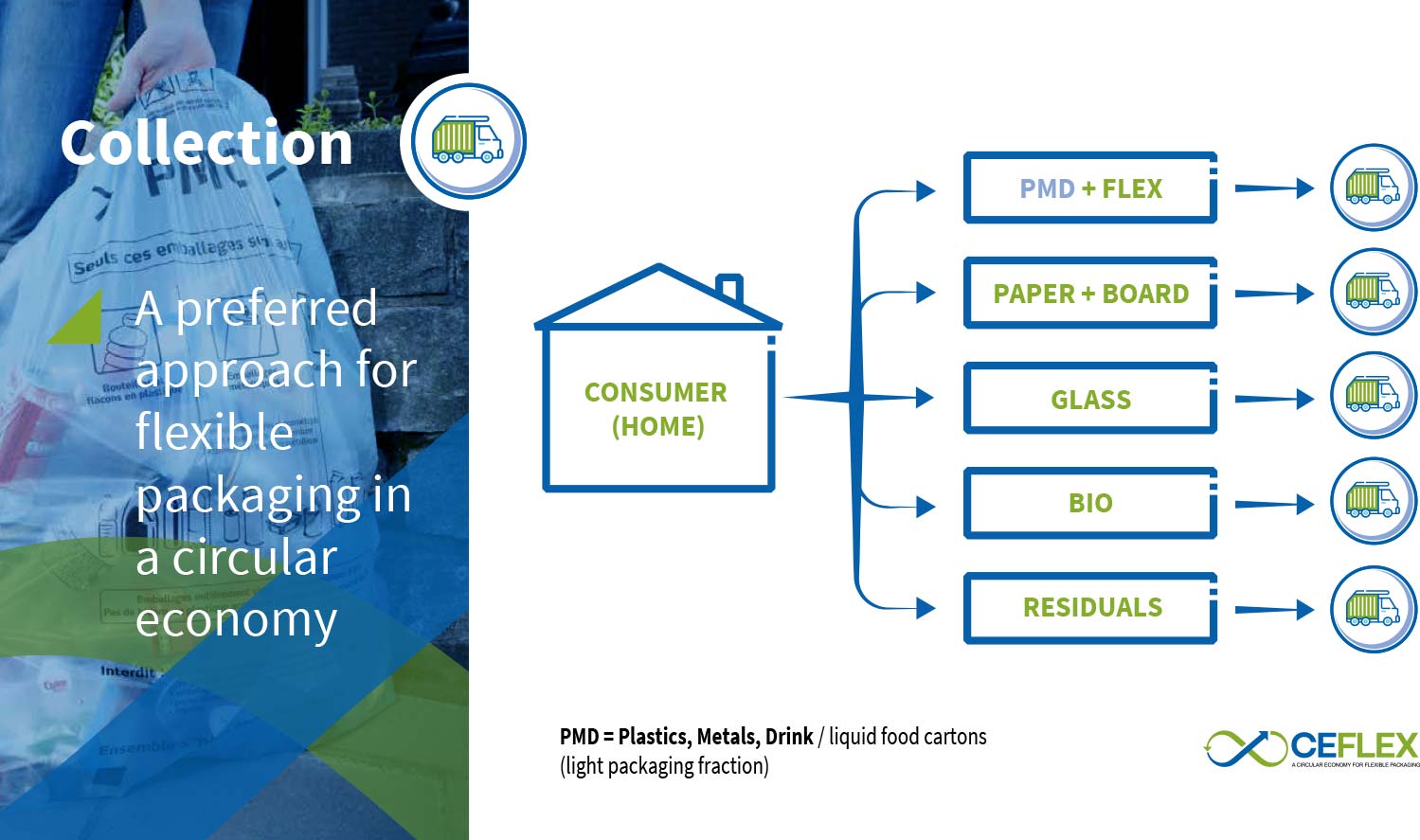Agreed common position on collecting flexible packaging waste in a circular economy outlines essential elements to capture resources
Collection of flexible packaging today
Separate collection of consumer flexible packaging is already happening in at least 18 European countries. An estimated 80% of consumer household flexible packaging placed on the market in Europe is collected today; and post sorting of municipal solid waste is extending the quantity of material available for sorting – particularly in urban areas. Where it is not already in place, CEFLEX assessments and modeling show effective separate collection of flexible packaging can be achieved with relatively modest investment and infrastructure changes.
Essentials to drive progress
An ongoing alignment on key issues is being undertaken by the Circular Economy for Flexible Packaging (CELFEX) initiative to help drive progress. The process combines detailed research, consultation and debate to reach a common position. From September 2020 to February 2021 more than 300 stakeholders participated in two dedicated webinars; interviews; and a value chain representative, 25-person, 2-day workshop, to agree the final statement. These efforts are part of delivering on CEFLEX’s five-step roadmap and intended to help accelerate realising the circular economy for flexible packaging.
The approved position statement outlines the essential elements to capture flexible packaging resources:
- All flexible packaging must be targeted for collection and sorting, including on-the-go packaging. Especially in those few countries where it is not yet collected like the UK.
- Flexible plastic packaging should be collected as a separate stream or with other light packaging and not mixed with paper, board or glass to maximise recycling quality.
- Additional sorting of flexible packaging from mixed waste is likely necessary to access all flexible packaging materials and enable circularity.
- CEFLEX and its stakeholders aim to work with the national authorities and Extended Producer Responsibility (EPR) schemes to develop effective collection systems that allow for these materials to be sorted and sent for recycling.
The newly agreed position statement process contributes to, and supports, on-going research, assessment studies by CELFEX. These include economic and environmental collection costs in selected countries, in collaboration with SUEZ and the MARECIE Mapping Recyclability in Europe work, studying recycling infrastructure and EPR schemes, in collaboration with Flexible Packaging Europe and Recyda.
Collection: a preferred approach for flexible packaging in a circular economy


